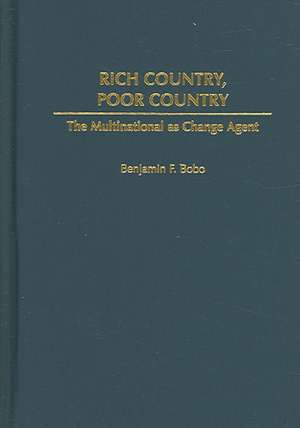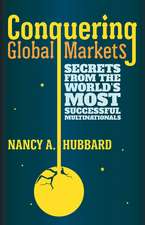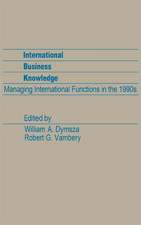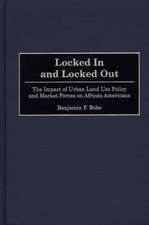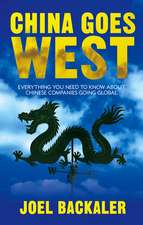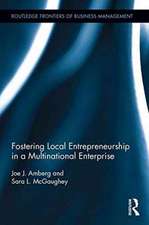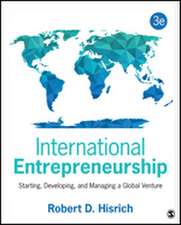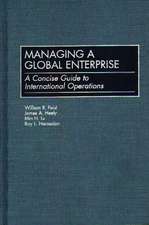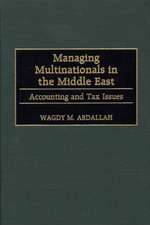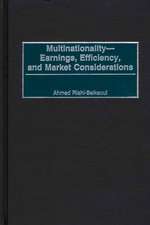Rich Country, Poor Country: The Multinational as Change Agent
Autor Benjamin F. Boboen Limba Engleză Hardback – 29 apr 2005 – vârsta până la 17 ani
Preț: 320.68 lei
Preț vechi: 391.60 lei
-18% Nou
Puncte Express: 481
Preț estimativ în valută:
61.37€ • 63.71$ • 51.17£
61.37€ • 63.71$ • 51.17£
Carte tipărită la comandă
Livrare economică 22 martie-05 aprilie
Preluare comenzi: 021 569.72.76
Specificații
ISBN-13: 9780275979287
ISBN-10: 0275979288
Pagini: 256
Dimensiuni: 156 x 235 x 25 mm
Greutate: 0.46 kg
Ediția:New.
Editura: Bloomsbury Publishing
Colecția Praeger
Locul publicării:New York, United States
ISBN-10: 0275979288
Pagini: 256
Dimensiuni: 156 x 235 x 25 mm
Greutate: 0.46 kg
Ediția:New.
Editura: Bloomsbury Publishing
Colecția Praeger
Locul publicării:New York, United States
Notă biografică
Benjamin F. Bobo is Professor of Finance at Loyola Marymount University, Los Angeles. His research focuses on life-choice constraints of the economically disadvantaged in the United States and around the world. He is the author of many articles and books, including Locked in and Locked Out: The Impact of Urban Land Use Policy and Market Forces on African Americans (Praeger, 2001).
Cuprins
PrefaceAcknowledgmentsPerspectiveIntroductionThe Historical Context in BriefMultinational Corporations in the Economic Development of Black Africa: Some Problems That Affect an Equitable RelationshipIssues in North-South Relations and the New World OrderMN-Third World Relations: A Comparative Study of Policymakers' Attitudes and PerceptionsMultinationals in the Third World: Reciprocity, Conflict Resolution and Economic Policy FormulationMultinationals, the North, and the New World Order: Objectives and OpportunitiesInternationalization Decision Making and the Global Interdependency Sensitivity ThesisMultinationals and the Caribbean: A Postcolonial PerspectiveThird World Investment Strategy: The African PredicamentWhose Wealth to Maximize: The Third World as StakeholderGIST and Profit Satisficing: Toward More User-Friendly Shareholder Wealth MaximizationUser-Friendly Shareholder Wealth Maximization and B-School PedagogyEpilogueBibliographyIndex
Recenzii
Bobo (finance, Loyola Marymount U.) feels strongly that income inequality between rich and poor nations and the deep poverty of the Third World can be effectively addressed by the multinational corporation. He presents 14 previously published essays that address the matter from a variety of angles, discussing such matters as MNC-host country relationships in Africa, the possibilities of MNCS putting aside exploitative practices in recognition that poor countries may otherwise unite against them, the attitudes of policymakers in poor countries and in MNCs, the lessons from conflict and conflict resolution models, expanding the corporate model of wealth maximization to include Third World stakeholders, and the issue of a new pedagogy in support of such a model.
